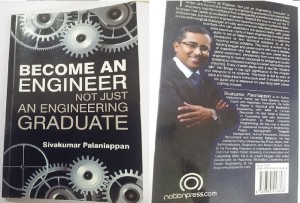Jigsaw Academy, India’s top online school for analytics, and Analytics Vidhya, India’s largest analytics and data science community have launched the Analytics India Industry Report 2017 – Salaries & Trends. While automation is spelling doom for IT services professionals in India [and worldwide], this report comes as a life saver to many. With the recent flurry of layoffs by major IT players, the report suggests that adding analytics skills to their kitty will not only save careers for IT professionals, but also help them get a bump in their pay.
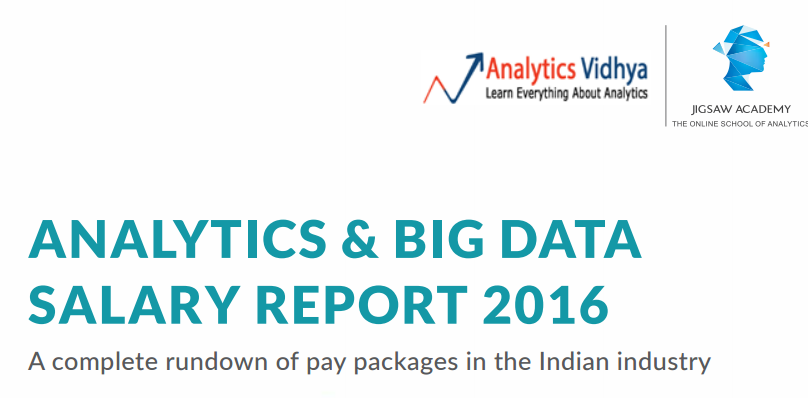
The Indian IT industry has for the better part been services focused. While that worked a decade ago, it is no longer the need of the industry. Weighing in on this, Gaurav Vohra, CEO & Co-founder of Jigsaw Academy said
We have long talked about moving up the value chain in terms of the services we offer to the world. We now have a chance to become the intelligence hub for the world. The IT industry can transform itself into IT 2.0 by riding on the big data wave. But they need to move fast if they have to stay relevant.
The report also has extremely interesting insights on the kind of salaries currently being offered to professionals with analytics skills. The bet on Machine Learning is finally paying off and it is the best paying analytics skill in the market currently, with an average pay of Rs. 10.43 LPA, even beating Big Data to the top spot, which comes in close with an average pay of Rs. 9.93 LPA. However, what companies seem to cherish are professionals with both these skill sets, a combination which fetches a cool Rs. 13.94 LPA on an average.
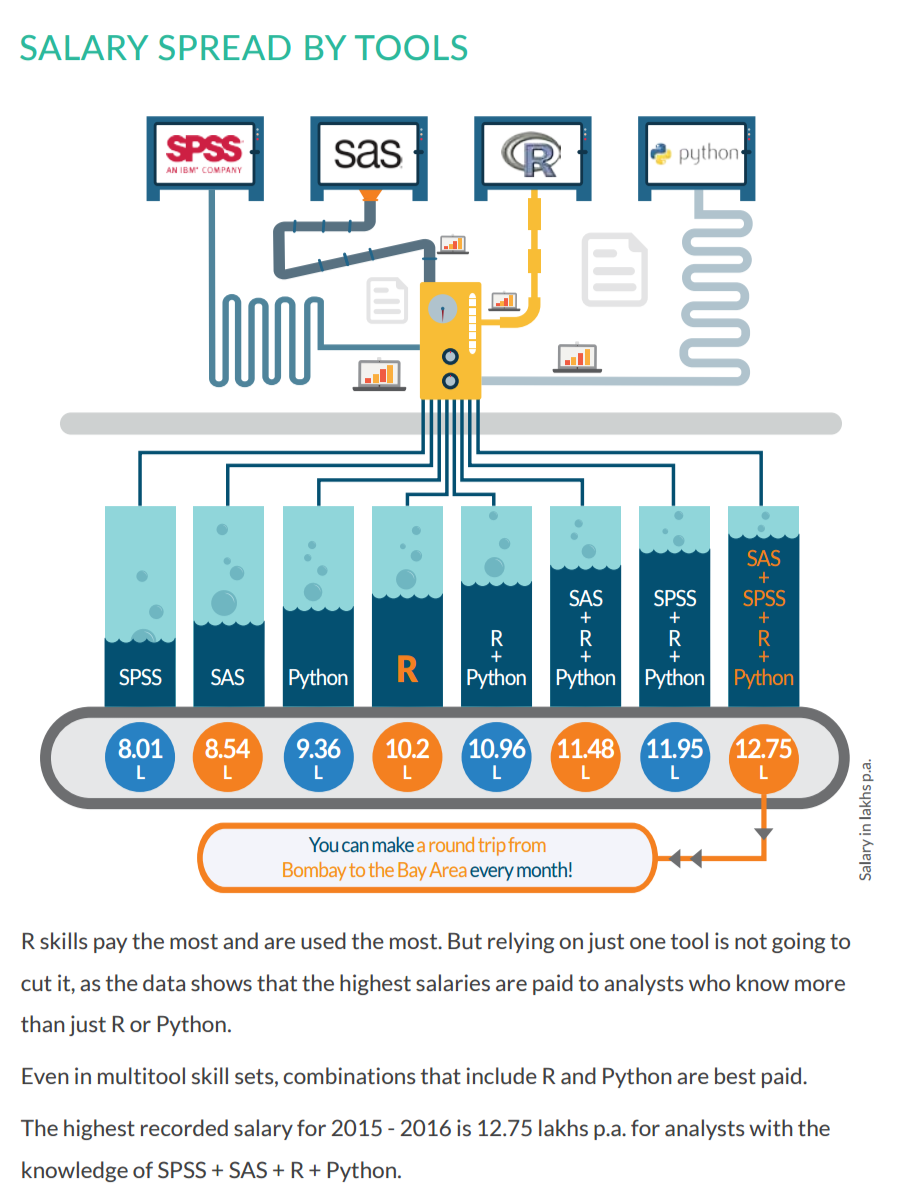
A huge change, as per the report, is the industry wide adoption and use of open source tools. In fact, for the first time this year, top tools that can help professionals get into analytics are R and Python, both of which are wildly popular open source tools. This points to the fact that popularity of expensive analytics computing software is on a steady decline. The salaries based on tools too seems to reflect this.
R and Python skills alone pay better than SAS, with average pay of Rs. 10.40 LPA and Rs. 10.12 LPA respectively. But here too, it is the combination of multiple skill-sets seems to pay the best. The best paid professionals are the ones with SAS + R + Python proficiency, with an average pay of Rs. 12.91 LPA. The report also includes more salary insights based on city, company size, experience, and domain.
Speaking about the report, Kunal Jain, Founder & CEO of Analytics Vidhya said
Open source tools combined with machine learning techniques have become the focus of the industry. It is evident from the report that companies prefer people who embrace the open source ecosystem and have high agility to learn new tools and techniques-a trend we see across our competitions and job portal. Companies are looking out for well-rounded professionals who can apply Machine Learning & Big Data to solve real business problems.
The report states that Machine Learning algorithms are dominating the business projects landscape with regression as the lone crusader fighting the battle for traditional statistical techniques. In fact, the top algorithms that organizations want people to pick up are Machine Learning ones.
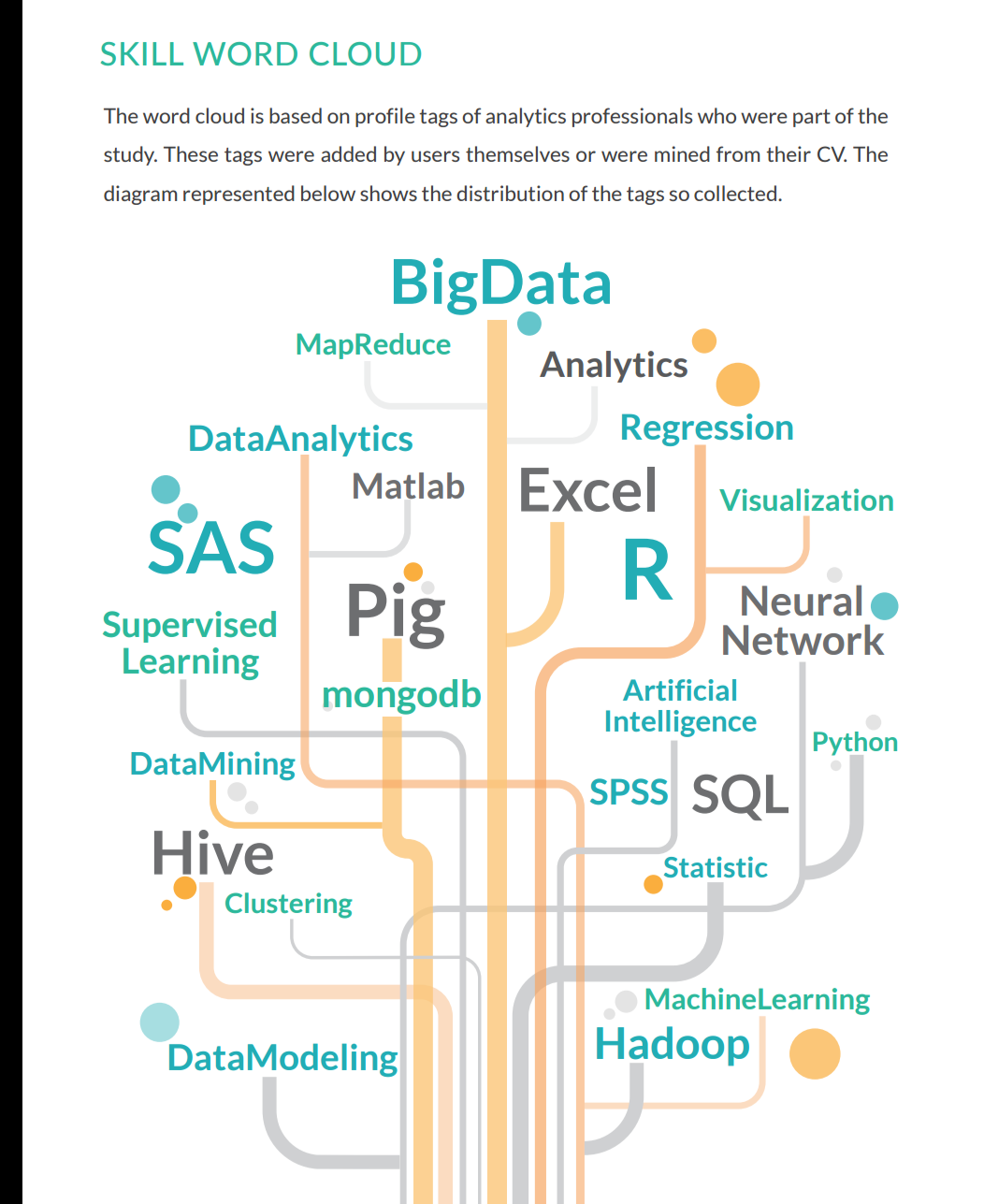
This is not to say Big Data has lost any steam. Big Data Analytics roles have evolved and the last 18 months has seen some level of consolidation in terms of techniques and tool knowledge needed. As per the report, Hadoop skills, in combination with Spark and Tableau, and along with knowledge of popular databases like Mongo and Cassandra, makes for that rare big data unicorn. The analytics industry has always favoured people with knowledge of multiple tools and that still stands true. The industry is on the lookout for specialists in different areas of analytics who can work on a project end-to-end. Going by the report, this is the age of the analytics specialist.
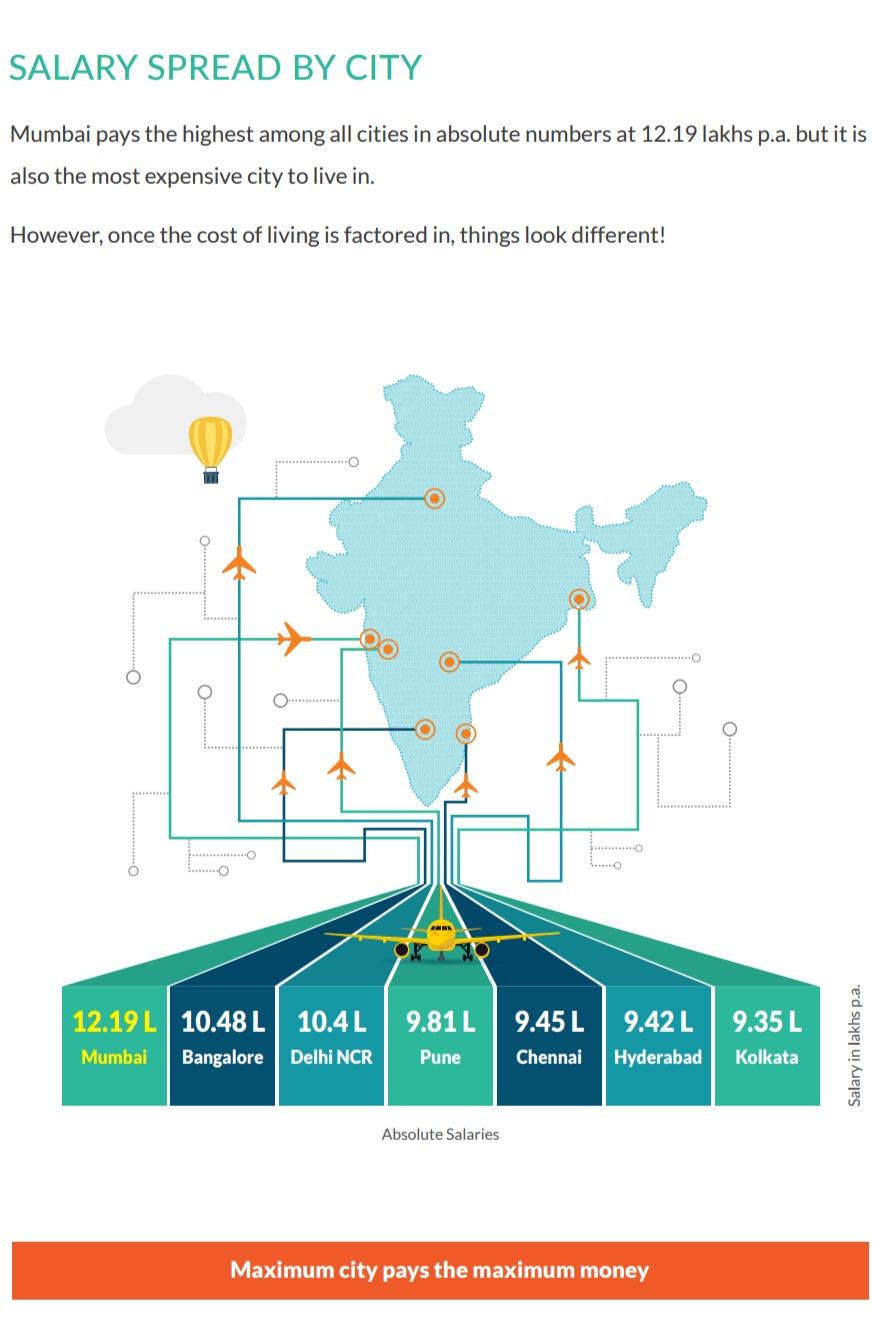
Sarita Digumarti, COO & co-founder of Jigsaw Academy said
Easy access to Big Data and massive processing power has made Machine Learning techniques more popular than ever amongst data scientists. Businesses now have learnt to harness the immense power of machine learning and are ready to put faith in abstract machine learning models that they probably don’t even understand.
Analytics, Big Data, and Machine Learning skills are making people stand out and get hired at handsome pay packages. It is time to pivot towards these for a future proof career.
The annual report by Jigsaw Academy and Analytics Vidhya is compiled to cater to the needs of aspirants, analytics professionals, and employers. Based on information collected from 65,000+ analytics professionals with advanced analytics/data science skills, the report explains in detail the industry and salary trends for the upcoming year.
The detailed report can be downloaded from here
About Jigsaw Academy
Jigsaw Academy is a premier online analytics training institute headquartered in Bengaluru, India. Founded by the duo of Gaurav Vohra and Sarita Digumarti, and funded by Manipal Global Education Services [MaGE], Jigsaw Academy has helped over 45,000 students in 30+ countries to build a successful career in analytics with their specialized industry oriented courses. Jigsaw Academy has collaborated with two world class international universities viz. University of Chicago, USA and University of Bocconi, Italy to offer specialized blended learning certification programs. For more information, please visit JigSaw Academy
About Analytics Vidhya
Analytics Vidhya is India’s largest Analytics and Data Science community. They run a portal which helps people in learning data science, interact with industry experts, compete in hackathons, and find job opportunities in data science. Analytics Vidhya also conducts various meetups, webinars, and conference across the country. The aim behind this platform is to create a passionate community of analytics enthusiasts. For more information, please visit Analytics Vidhya


